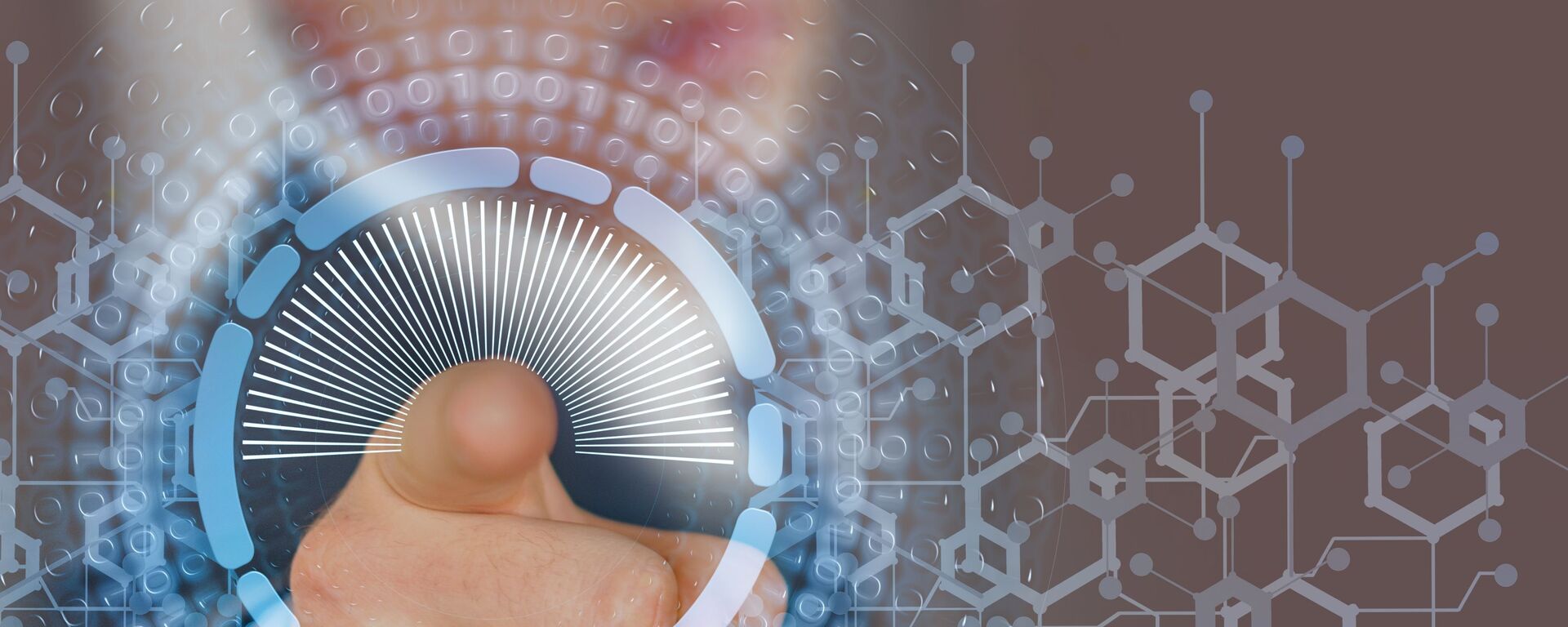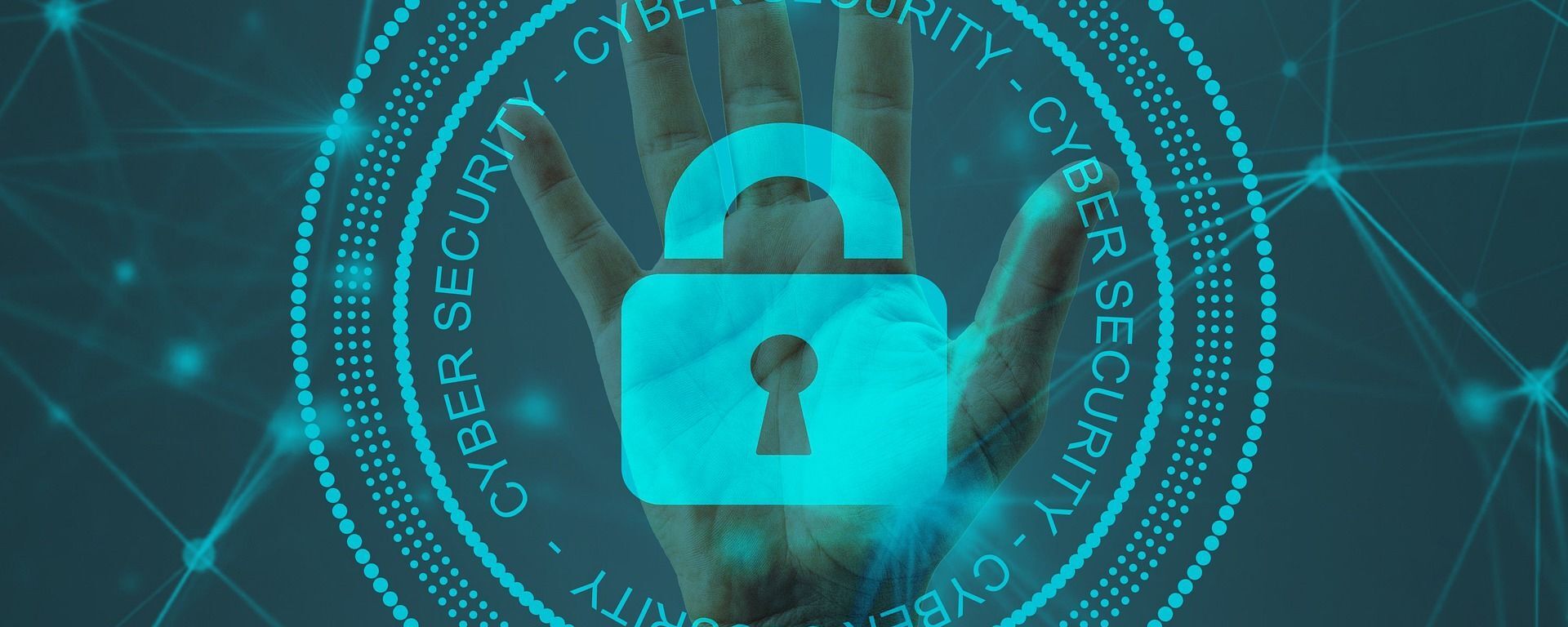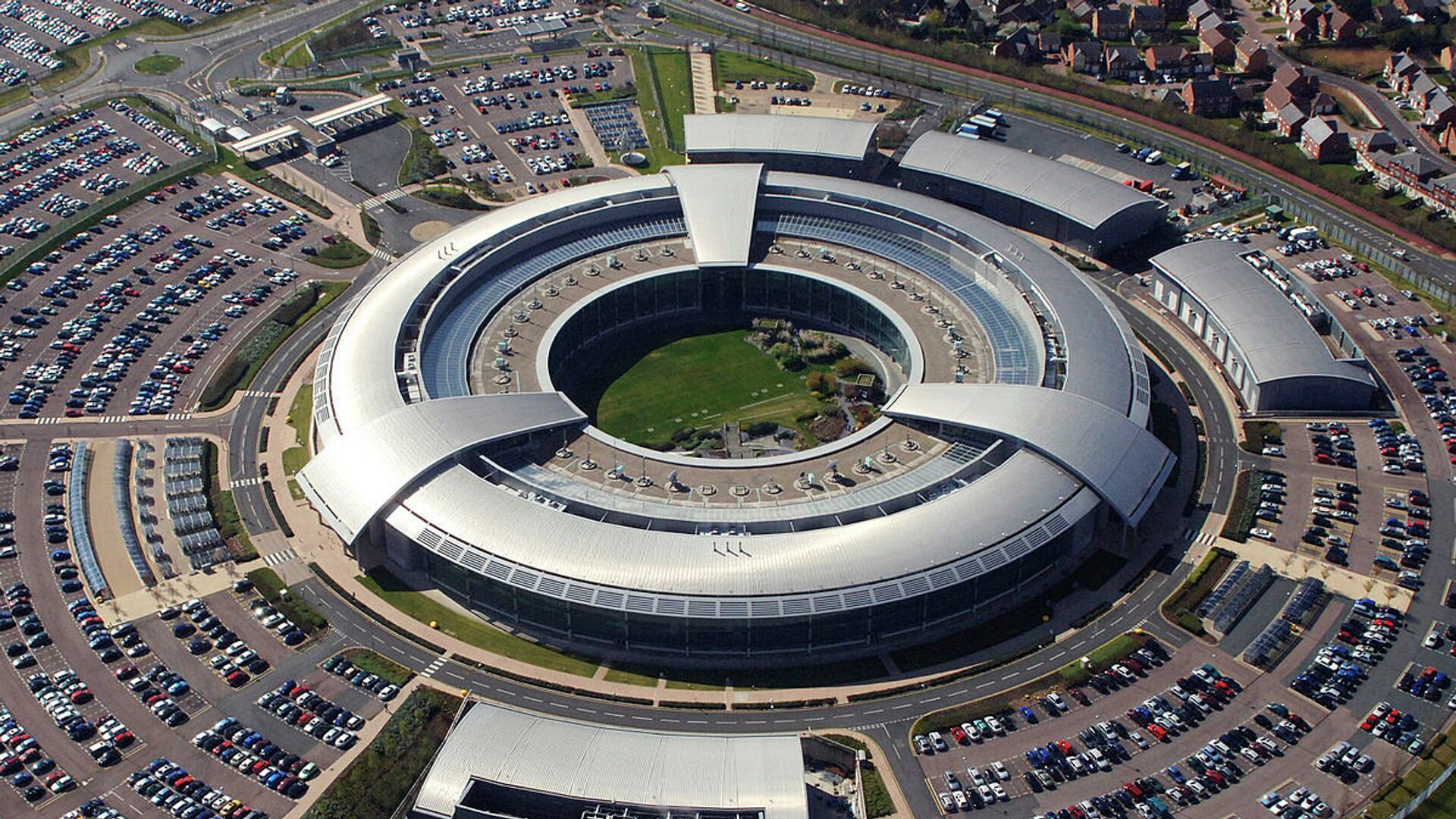https://sputnikglobe.com/20211117/guess-whos-to-blame-britains-gchq-reports-record-growth-in-hack-attacks-1090799038.html
Guess Who’s to Blame? Britain’s GCHQ Reports Record Growth in Hack Attacks
Guess Who’s to Blame? Britain’s GCHQ Reports Record Growth in Hack Attacks
Sputnik International
Western nations have spent over a year claiming that Chinese, Russian and Iranian hackers have worked to steal their precious Covid research. The motivation... 17.11.2021, Sputnik International
2021-11-17T10:40+0000
2021-11-17T10:40+0000
2021-11-17T10:56+0000
hacking
british government communications headquarters (gchq)
uk national cyber security center
https://cdn1.img.sputnikglobe.com/img/102411/46/1024114604_0:26:1201:701_1920x0_80_0_0_eff1fbb21487041b8c3a2eda403c6b60.jpg
The National Cyber Security Centre (NCSC), the Government Communications Headquarters (GCHQ)-subordinated entity tasked with tackling cybersecurity threats to Britain, has issued a new report claiming that hack attacks against the UK have hit a new record high, with the usual suspects of Russia, China, Iran, and North Korea blamed for the cyber malevolence.The NCSC reported that its major efforts included dealing with fallout of the Solarwinds hack – the massive late 2020 cyberattack on US government agencies, Fortune 500 companies and host of other entities, both in America and Europe, which Washington blamed on Russia’s Foreign Intelligence Service. Moscow dismissed any involvement, and asked the US side to present evidence, but the Biden administration used the hack as a pretext to slap new sanctions on Russia anyway back in April.The NCSC also pointed to a major uptick in ransomware attacks, both by criminals and hostile states, locking users out of their computers or data and demanding a cash ransom.Chinese officials denied any involvement in the Microsoft Exchange hack, accusing the US and its allies of “ganging up” on Beijing, and saying that the allegations were “fabricated” by the US and its partners.The NCSC is the same organisation which previously made the (since debunked) claim that Russia sent out wave after wave of Twitter trolls ahead of the 2016 Brexit referendum to try to influence its results, and then echoed allegations made by US spooks that Moscow meddled in the 2016 election in the US to get Donald Trump elected (those claims too have since collapsed under their own weight, with internet giants Twitter, Facebook and Google carrying out internal reviews showing Russian bot/troll activity to have been extremely insignificant).The report did not go into detail about why Russia (which has created three domestic Covid vaccines - including the world's first registered coronavirus jab, Sputnik V) would want to pilfer British scientists’ data, especially given the fact that Sputnik V's developers, Gamaleya Center, signed a memorandum on cooperation with AstraZeneca. Why China (which has five of its own coronavirus vaccines at its disposal) would seek to steal Western scientists' data is also unclear. As for Iran, that country temporarily banned vaccines developed and produced in the US and the UK altogether last year, agreeing to lift restrictions only this past August on the condition that the jabs be produced in third countries.The UK, the US and their allies have repeatedly accused Russia, China and other states of involvement in a range of malicious cyber activities, using the suspected attacks to justify sanctions, trade restrictions, and other actions. Moscow, Beijing and other nations facing the accusations dismissed the claims. Which side is telling the truth is difficult to determine with 100 percent certainty. However, what is known is that in 2017, WikiLeaks revealed that the Central Intelligence Agency had developed a software suite known as the ‘Marble Framework’ which enables it to obfuscate the true source of hack attacks and make them look like they’re coming from Russia, China, Iran, North Korea, or any number of Arab countries, while actually being generated in another location. Cybersecurity experts believe that in addition to the CIA, other US intelligence agencies – and the intelligence services of other countries, likely have similar capabilities at their disposal, often making determining the true source of a hack attack difficult if not impossible to determine.
https://sputnikglobe.com/20211116/us-patience-regarding-russian-probe-of-hack-attacks-not-unlimited-national-cyber-director-says-1090781073.html
https://sputnikglobe.com/20211113/hackers-infiltrate-fbi-email-system-send-out-thousands-of-messages-warning-of-cyberthreat-1090716017.html
Sputnik International
feedback@sputniknews.com
+74956456601
MIA „Rossiya Segodnya“
2021
News
en_EN
Sputnik International
feedback@sputniknews.com
+74956456601
MIA „Rossiya Segodnya“
Sputnik International
feedback@sputniknews.com
+74956456601
MIA „Rossiya Segodnya“
hacking, british government communications headquarters (gchq), uk national cyber security center
hacking, british government communications headquarters (gchq), uk national cyber security center
Guess Who’s to Blame? Britain’s GCHQ Reports Record Growth in Hack Attacks
10:40 GMT 17.11.2021 (Updated: 10:56 GMT 17.11.2021) Western nations have spent over a year claiming that Chinese, Russian and Iranian hackers have worked to steal their precious Covid research. The motivation for the alleged hacking is unclear – given that Russia and China have already created a total of eight homegrown jabs, while Iran effectively banned vaccines from the US and the UK outright.
The National Cyber Security Centre (NCSC), the Government Communications Headquarters (GCHQ)-subordinated entity tasked with tackling cybersecurity threats to Britain, has issued a new
report claiming that hack attacks against the UK have hit a new record high, with the usual suspects of Russia, China, Iran, and North Korea blamed for the cyber malevolence.
In a press release accompanying the report, the NCSC said it had to respond to a whopping 777 cyberattacks over the past year, up from 723 a year earlier, with COVID-19 vaccine research said to be a “prime target” for malicious actors, alongside hacking of vaccine distribution and supply chains, hospitals and research centres accounting for about 20 percent of the attacks.
The NCSC reported that its major efforts included dealing with fallout of the Solarwinds hack – the
massive late 2020 cyberattack on US government agencies, Fortune 500 companies and host of other entities, both in America and Europe, which Washington blamed on Russia’s Foreign Intelligence Service. Moscow dismissed any involvement, and asked the US side to present evidence, but the Biden administration used the hack
as a pretext to slap new sanctions on Russia anyway back in April.
The NCSC also pointed to a major uptick in ransomware attacks, both by criminals and hostile states, locking users out of their computers or data and demanding a cash ransom.
The agency characterized China as “a highly sophisticated actor in cyberspace with increasing ambition to project its influence beyond its border and a proven interest in the UK’s commercial secrets.” The NCSC suggested that “how China evolves in the next decade will probably be the single biggest driver of the UK’s future cyber security.” The agency blamed Chinese “state-backed actors” for a July 2021 hack on Microsoft Exchange servers. The agency characterised that attack as “the most significant and widespread cyber intrusion against the UK and allies every observed by the NCSC.”
Chinese officials
denied any involvement in the Microsoft Exchange hack, accusing the US and its allies of “ganging up” on Beijing, and saying that the allegations were “fabricated” by the US and its partners.

16 November 2021, 17:34 GMT
While it rehashed months-old claims by Western governments against Russia, China, North Korea and Iran, the NCSC’s 88-page report provided no actual new evidence of these countries’ suspected involvement in any malicious cyber activity against the UK or its allies.
The NCSC is the same organisation which previously made the (
since debunked) claim that Russia sent out wave after wave of Twitter trolls ahead of the 2016 Brexit referendum to try to influence its results, and then echoed allegations made by US spooks that Moscow meddled in the 2016 election in the US to get Donald Trump elected (those claims too have since
collapsed under their own weight, with internet giants Twitter, Facebook and Google carrying out internal reviews showing Russian bot/troll activity to have been
extremely insignificant).
The report did not go into detail about why Russia (which has created three domestic Covid vaccines - including the world's first registered coronavirus jab, Sputnik V) would want to pilfer British scientists’ data, especially given the fact that Sputnik V's developers, Gamaleya Center, signed a memorandum on cooperation with AstraZeneca. Why China (which has five of its own coronavirus vaccines at its disposal) would seek to steal Western scientists' data is also unclear. As for Iran, that country temporarily banned vaccines developed and produced in the US and the UK altogether last year, agreeing to lift restrictions only this past August on the condition that the jabs be produced in third countries.
The UK, the US and their allies have repeatedly accused Russia, China and other states of involvement in a range of malicious cyber activities, using the suspected attacks to justify sanctions, trade restrictions, and other actions. Moscow, Beijing and other nations facing the accusations dismissed the claims. Which side is telling the truth is difficult to determine with 100 percent certainty. However, what is known is that in 2017, WikiLeaks revealed that the Central Intelligence Agency had developed a software suite known as the ‘Marble Framework’ which enables it to obfuscate the true source of hack attacks and make them look like they’re coming from Russia, China, Iran, North Korea, or any number of Arab countries, while actually being generated in another location. Cybersecurity experts believe that in addition to the CIA, other US intelligence agencies – and the intelligence services of other countries, likely have similar capabilities at their disposal, often making determining the true source of a hack attack difficult if not impossible to determine.

13 November 2021, 21:36 GMT



